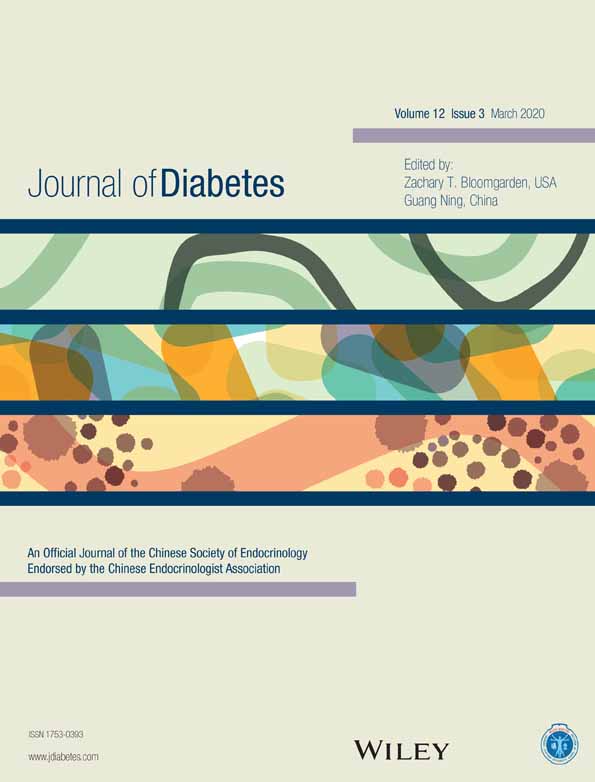Fructose tolerance test in obese people with and without type 2 diabetes
有或无2型糖尿病肥胖者的果糖耐量试验
Funding information: Kuwait Foundation for the Advancement of Sciences
Abstract
enBackground
Fructose is distinct among common sugars in its ability to raise serum uric acid, and some studies suggest fructose-induced uric acid production may have a role in the ability of this sugar to induce metabolic syndrome. A fructose tolerance test has been previously developed to evaluate the relative ability of fructose to raise uric acid in individuals. However, the effect of fructose to raise uric acid in people with diabetes has not been studied.
Methods
People with type 2 diabetes (n = 143) and without diabetes controls (n = 132) with similar body mass index (BMI) underwent an oral fructose tolerance test. As a comparison, participants also had their uric acid levels measured after an oral glucose tolerance test on a different day.
Results
Serum uric acid was lower in people with type 2 diabetes compared to controls with a similar BMI, especially those with poor glucose control (glycosylated hemoglobin [HbA1c] ≥ 8%). Fructose administration raised serum uric acid in both groups, with a lower absolute rise in people with diabetes. People with diabetes with a blunted rise in serum uric acid had higher baseline serum uric acid concentrations and a higher BMI. People without diabetes with a higher BMI also showed a blunted serum uric acid response. Oral glucose administration lowered serum uric acid in both participants, with a greater fall in those with diabetes.
Conclusion
Both the presence of diabetes and obesity blunt the serum uric acid response to fructose ingestion. These data demonstrate altered fructose-dependent urate metabolism in type 2 diabetes.
摘要
zh背景
果糖与一般的糖不同之处在于它可以升高血清尿酸含量。一些研究表明, 果糖所产生的尿酸可能会在诱导代谢综合征中发挥作用。目前, 果糖耐量试验已用于评估个体中果糖对尿酸的提高相对量。然而, 对于糖尿病患者, 还未研究过果糖升高尿酸的影响。
方法
研究者对体重指数(BMI)相近的2型糖尿病患者(n=143)和非糖尿病对照组(n=132)进行口服果糖耐量试验。作为比较, 受试者还在另一天行口服葡萄糖耐量试验, 测量其尿酸水平。
结果
与体重指数相近的对照组相比, 2型糖尿病患者的基础血尿酸水平较低, 特别是那些血糖控制较差的人(糖化血红蛋白[HbA1c]≥8%)。服用果糖提升了两组的血尿酸水平, 糖尿病患者的绝对升幅较低。血清尿酸升高缓慢的糖尿病患者有较高的基线血尿酸浓度和较高的BMI。没有糖尿病、BMI较高的人也表现出血清尿酸反应迟钝。口服葡萄糖降低了两组受试者的血尿酸, 其中糖尿病患者的下降幅度更大。
结论
糖尿病和肥胖的存在, 都会削弱血清尿酸对于果糖摄入的反应。这些数据表明糖尿病患者对于果糖依赖性的尿酸代谢显示异常
CONFLICT OF INTERESTS
MAL, LGL, CJR, and RJJ are members of Colorado Research Partners LLC which is developing inhibitors of fructose metabolism for the treatment of metabolic diseases. LGL and RJJ are also listed as inventors on several patent applications related to fructose metabolism and metabolic disorders. RJJ also has equity with XORT therapeutics and has several patents and patent applications related to lowering uric acid in hypertension and metabolic diseases.




